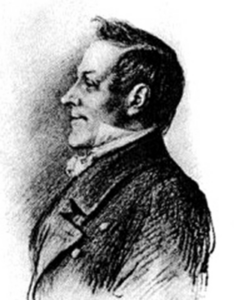Above all magic - love
(Poet's title: Über allen Zauber Liebe)
Set by Schubert:
D 682
[probably late 1820]
Sie hüpfte mit mir auf grünem Plan,
Und sah die falbenden Linden an,
Mit trauernden Kindesaugen.
Die stillen Lauben sind entlaubt,
Die Blumen hat der Herbst geraubt,
Der Herbst will gar nichts taugen.
Ach, du bist ein schönes Ding,
Frühling!
Über allen Zauber Frühling.
Das zierliche Kind, wie’s vor mir schwebt!
Aus Lilien und Rosen zart gewebt,
Mit Augen gleich den Sternen; –
Blüht mir dein holdes Angesicht,
Dann mag, fürwahr ich zage nicht,
Der Maien sich entfernen.
Färbet nur des Lebens Trübe
Liebe:
Über allen Zauber Liebe.
She was jumping with me on the green expanses
And she looked at the lime trees as they turned brown
With the mournful eyes of a child;
“The quiet foliage has fallen off,
Autumn has stolen the flowers,
Autumn has absolutely nothing to offer us.
Oh, you are a beautiful thing,
Spring!
Above all magic – spring.”
That dainty child, how she hovers before me!
Tenderly woven out of lilies and roses,
With eyes like the stars; –
“If your beauteous face is blossoming for me
Then I have no hesitation in saying
That May must have departed.
The only thing that gives colour in life’s dullness is
Love:
Above all magic – love.”
All translations into English that appear on this website, unless otherwise stated, are by Malcolm Wren. You are free to use them on condition that you acknowledge Malcolm Wren as the translator and schubertsong.uk as the source. Unless otherwise stated, the comments and essays that appear after the texts and translations are by Malcolm Wren and are © Copyright.
☙
Themes and images in this text:
Autumn Children and childhood Colour (general) Eyes Flowers Green Leaves and foliage Lilies Lime trees (Lindenbaum) May Noise and silence Roses and pink Spring (season) Stars Weaving
This is not the way most poets view things. The first verse, praising spring, is set in autumn, amidst fallen leaves and dull colours. It is only because of the decay that the girl becomes aware of the loss of the flowers and new shoots. The second, parallel, stanza concludes that love, too, is higher than any magic. This can only be because the poet has realised that love is not present. If it ever existed, it has gone the way of spring. May has departed.
☙
Original Spelling and notes on the text Über allen Zauber Liebe Sie hüpfte mit1 mir auf grünem Plan Und sah die falbenden2 Linden an Mit trauernden Kindesaugen; "Die stillen Lauben sind entlaubt, Die Blumen hat der Herbst geraubt, Der Herbst will gar nichts taugen. Ach, du bist ein schönes Ding, Frühling! Ueber allen Zauber Frühling." Das zierliche Kind, wie's vor mir schwebt! Aus Lilien und Rosen zart gewebt, Mit Augen gleich den Sternen; - "Blüht mir dein holdes Angesicht, Dann mag, fürwahr ich zage nicht, Der Mayen sich entfernen. Färbet nur des Lebens Trübe Liebe: Ueber allen Zauber Liebe." 1 When Mayhofer published this poem in 1824 the word here was 'vor' (in front of') not 'mit' (with). It is impossible to know if Schubert made the change when he was writing his setting or whether he was working from an earlier draft of the text. 2 Mayrhofer, 1824: fahlenden (pale or faded)
Confirmed by Peter Rastl with Gedichte von Johann Mayrhofer. Wien. Bey Friedrich Volke. 1824, page 53.
To see an early version of the text, go to page 53 [67 von 212] here: http://digital.onb.ac.at/OnbViewer/viewer.faces?doc=ABO_%2BZ177450902


